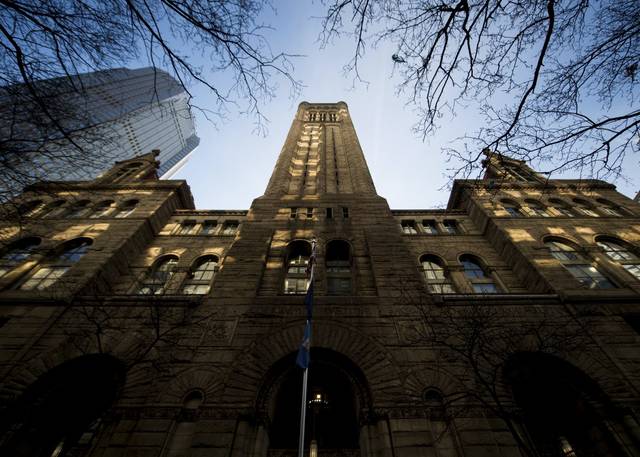Property owners filing deed and mortgage transactions in Allegheny County will now pay an additional fee.
The $15 fee will be applied to those transactions, and revenue generated from that fee will be deposited in a fund to support the demolition of vacant, dilapidated properties.
Allegheny County Council unanimously approved the ordinance on Tuesday, which was sponsored by District 9 Councilman Bob Macey, D-West Mifflin, in February.
In 2018, about 127,500 eligible deed and mortgage transactions were recorded.
That means the county could raise about $2 million per year from the fund.
At that rate, the fees would fund the demolition of about 167 to 200 blighted properties, with each project estimated to cost between $10,000 and $12,000.
“I don’t believe that the $15 is going to have going to have any type of impact on the sale of any type of properties here,” said at-large Representative Sam DeMarco III, R-North Fayette. “I believe that our reducing the amount of blighted property is going to help folks maintain higher property values, and that’s a benefit to all.”
Municipalities in District 5, which includes the South Hills, do not have a lot of blighted buildings. Councilman Tom Duerr, D-Bethel Park, said he’s hopeful that the funds could have an impact on demolishing buildings prone to flooding and landslides.
“This could have a tremendous effect countywide on generating additional property tax revenue, raising property values for county residents, without having to raise property taxes countywide,” Duerr added.
A state law passed in 2016 allows counties to charge up to $15 on deed and mortgage recording transactions to raise money to address blight. Since then, 19 counties throughout the state have adopted such programs, according to state Department of Community and Economic Development records.
In Southwestern Pennsylvania, that includes Armstrong, Beaver, Butler, Cambria, Fayette, Lawrence, Somerset and Westmoreland counties.
Counties that operate the Act 152 program are required to report revenue and funds allocated to projects to the state Department of Community and Economic Development each year.
Allegheny County already operates the Vacant Property Recovery Program, which acquires vacant properties and transfers them to new owners who can get them back into use.
These funds would also supplement the federal Community Development Block Grant (CDBG) demolition fund, which totals about $500,000 per year, according to the ordinance.
Moving forward, District 10 Councilman DeWitt Walton, D-Hill District, said he’d like the county to consider maximizing demolition efforts by combining properties, using these projects to create jobs and finding ways to recycle salvageable materials from demolition projects.
“It creates an entrepreneurial opportunity, it creates an employment opportunity and it limits materials going to landfills,” Walton said.
Council President Pat Catena, D-Carnegie, presided over the meeting from the Gold Room of the Allegheny County Courthouse. The other 14 members of council attended remotely and cast their votes over the phone in order to comply with social distancing guidelines related to the covid-19 outbreak.
Council issues recommendation on inmate releases
Council also voted 9-6 in favor of formally encouraging county offices to further reduce the inmate population at the Allegheny County Jail in an effort to prevent an outbreak of covid-19 among inmates and staff.
Voting against the move were council members Tom Baker, R-Ross; Sam DeMarco III, R-North Fayette; Nick Futules, D-Oakmont; Cindy Kirk, R-McCandless; Bob Macey, D-West Mifflin and John Palmiere, D-Pleasant Hills.
The motion, introduced by at-large Representative Bethany Hallam, D-Ross, is identical to an ordinance she introduced during the March 24 meeting that also called on those offices to release more inmates. Council voted last month to send the ordinance to committee rather than fast-track the bill.
County offices, including Allegheny County Criminal Court judges, court administration, adult probation, pretrial services, the public defender’s office and the district attorney’s office, have been reviewing cases to determine which inmates could be released since early March.
“Nobody who we’re asking to be released are violent offenders,” Hallam said. “All of these people are charged either charged with non-violent crimes and awaiting trial, or they’re in there for probation violations. So we’re not asking that anyone who has been convicted of a crime be released, or that any people charged with violent offenses be released.”
Between March 16 and March 31, 701 people were released from the facility, according to an update issued by the county courts administrative office last week.
There were 1,729 people at the Allegheny County Jail as of April 7, which represents a decrease of 443 inmates at the facility compared to last month’s jail population, according to figures posted to the county website.
Instead of taking a case-by-case approach, Hallam said she wants those offices to consider releasing people based on categories, such as all those serving technical probation violations, or all non-violent people awaiting trial.
This could be important for people who are awaiting trial but who can’t afford to make a bail payment, Hallam said.
“The release of the incarcerated population isn’t just for their benefit, but also for the benefit of the staff members who work within the walls of the jail, who leave every day or every night and go home to their family go out in the communities, potentially infecting their loved ones with the coronavirus that they could contract within the jail,” Hallam said.
As of April 6, seven inmates and four staff members at the Allegheny County Jail have been tested for covid-19.
Of that total, one person, a staff member, has tested positive for the virus, according to figures posted to the county website.








